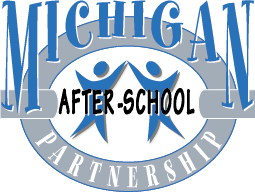 |
 |
|
 |
|
 |
|
 |
|

ESSA Toolkit Provides Guidance to Advance STEM, Afterschool
The Every Student Succeeds Act (ESSA), enacted last year with strong bipartisan support, identified several funding streams that states and districts can employ to support improvements in STEM education.
To better understand ways to utilize the nation's primary K-12 education law for informal and afterschool programming with strategies for STEM education, the STEM Education Coalition and the Afterschool Alliance has created a toolkit for providers and educators.
Learn how to strengthen your case when advocating with state and district officials. Get started by reading the document,
Opportunities to Advance Afterschool and Informal STEM Education Through the Every Student Succeeds Act.
For a range of background materials
and fact sheets on key STEM and informal education topics, check out the
STEM Education Coalition website.
The ESSA authorized $1.65 billion annually for the new
Title IV-A program, which will provide funding to every state and district to support well-rounded learning opportunities with a strong emphasis on STEM education, as well as learning technologies, and healthy and
safe school programs.
Congress is debating the final funding level, which will likely endup somewhere between $500 million and $1 billion.
|
|
 |
|
New Summer Learning Resources Available
Tap into the power of summer learning through
Common Grounds, affinity groups designed to connect like-minded peers around a common goal of creating smarter summers, brighter futures for America's young people.
Sign up here for:
- Access to virtual discussions;
- Invitations to special webinars;
- Exclusive and early access to the latest research; and
- Peer-led discussion groups designed to spark new thinking about your work.
Wondering how the recent election will affect summer learning opportunities at the federal, state and local levels?
Join the Policy Affinity Group to stay updated on the latest developments, tools and resources for summer learning advocates.
|
|
|
Despite dominating the headlines for the last 18 months, the race for the White House has devoted little attention to key domestic policy issues like K-12 education and child care, thus leaving many voters wondering what to expect under a Trump Administration.
The Afterschool Alliance examined President-Elect Donald Trump's proposals and public statements, as well as the Republican Party platform, to get a sense of what the afterschool community can expect from the next president.
Read about it in this Afterschool Snack article.
The article also outlines what the Alliance and you should do to advocate for afterschool issues. Already, the Alliance has sent the Trump transition team its priorities for the afterschool community, most notably a "bold and historic investment" that would double the number of low-income students participating in federally-assisted afterschool and summer learning programs.
You can make an impact by introducing yourself to local and state officials who have just been elected in your community.
(See related blog by below.) By using the
sample letter available in the Afterschool Alliance election kit, you can begin cultivating these lawmakers as allies for your afterschool program and plant the seeds of a valuable partnership.
|
|
 |
|
With the election over, it's time to think through timelines and strategies for working with the incoming Trump administration's transition team and the new 115th Congress.
Trump's team has been discussing cabinet position nominees and developing plans for the first 100 days. Among those mentioned for U.S. Secretary of Education has been former Republican presidential candidate Ben Carson. Trump has also said he may consider someone from the business community for the post.
Williamson M. Evers and Gerard Robinson, both members of the transition team, have been developing possible education policy positions. Evers is a research fellow at the conservative Hoover Institution, and Robinson, who was Florida's commissioner of education for a year, is a research fellow at the American Enterprise Institute. Robinson also served as principal investigator on the 2007 Mott-funded study "
More than homework, a snack, and basketball: Afterschool Programs as an Oasis of Hope for Black Parents in Four Cities," published by the Black Alliance for Educational Options. Read more about it this
Afterschool Snack article.
|
|
 |
|
By Michele Corey and Mina Hong,
Michigan's Children
As you know, in our wonderful and imperfect democracy that we call the United States of America, citizens recently had the opportunity to vote for elected officials who will make decisions on our behalves. Many, many decisions. And in our imperfect democracy, half of us are excited and half of us are concerned about what the future holds, but it is clear. The government isn't working for many, many individuals and familie
s. And now is the time that we all need to take action.
This is where democracy only works as well as we are willing to put into it. This is where you come in.
While most people in the State Legislature have a picture in their heads when we talk about after-school and summer learning. But, I would bet that many of those people don't have any idea about the difference that quality standards make in the outcomes of those programs, and the lack of public investment currently being made to support them. Maybe a few understand the important role that these programs play in allowing parents to work, perhaps a few the direct connection between quality programs and school success, possibly a few others the connection between quality programs and crime reduction.
I wonder if any really think about the key role that these programs play in helping engage parents with schools, or schools with other community resources. If the vast majority of policymakers don't understand the variety of impacts expanded learning have on children, youth, families and their communities or how insufficient current funding is to support the need for those programs, how can we expect them to make informed public policy decisions based on evidence and research that you know to be true?
Voting is just one step in the democratic process of an engaged electorate. Now is the time for you to make sure that those victorious candidates - and those who weren't up for re-election and will continue to serve in the next legislative session - understand that better supporting quality options afterschool and in the summer is essential. And while they certainly don't need to become experts, policymakers should have a foundational understanding and know that they can turn to you when they have questions and need more information.
So what can you do?
Get to know your policymakers. Sign-up for email bulletins from your
State Representative and your
State Senator and follow them on Facebook. Visit them at their local coffee hours or request to meet with them when they're home in their districts (Fridays through Mondays). Invite them to visit your program, or engage them in other ways to speak to children, youth and their families who have been involved in your programs. Now is the time to begin educating them and building a relationship with them so they turn to you when they have questions and can start making informed public policy decisions.
Learn more on how to strengthen your advocacy skills by visiting
Michigan's Children's website.
Michele Corey is the vice president for programs and Mina Hong is the senior policy analyst for Michigan's Children.
|
|
 |
|
|
|